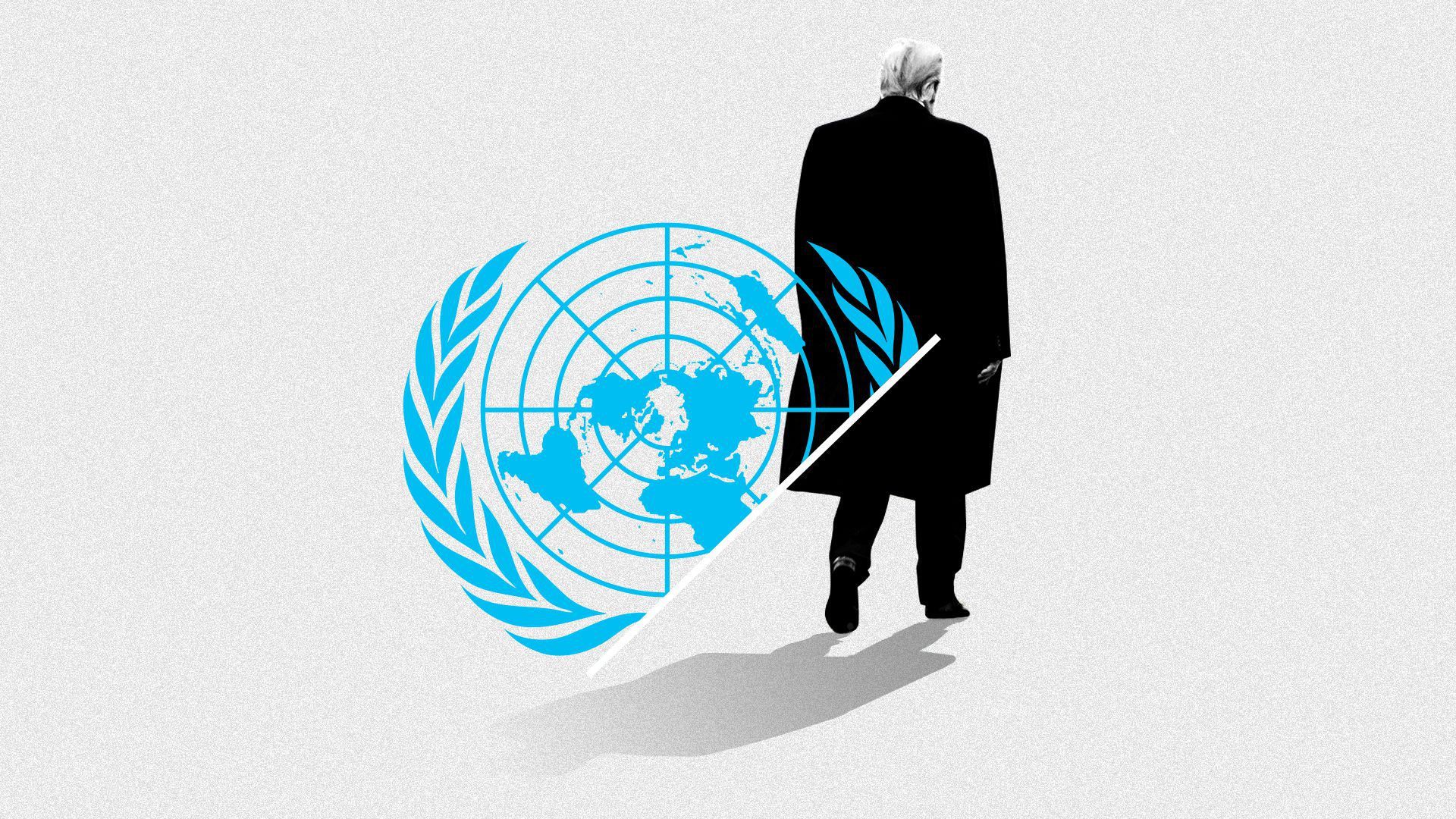Trump's Paris agreement endgame is here
Add Axios as your preferred source to
see more of our stories on Google.

Illustration: Aïda Amer/Axios
On Nov. 4, the U.S. will have bailed (pretty sure that's the precise diplomatic term) on the Paris climate agreement, but the date's significance depends almost entirely on what happens a day earlier.
Driving the news: Wednesday marks a year since the Trump administration started the one-year countdown required under the pact's rules to formally abandon the deal, though President Trump first announced the plan back in 2017.
Why it matters: If Trump wins Tuesday, pulling out the U.S. — the second-largest greenhouse gas emitter after China — will underscore his reversal of Obama-era international policy and lock it in for years.
- The effects on other nations are unclear, although lately several of the biggest carbon emitters — notably China and Japan — have actually been setting more aggressive long-term targets.
The big picture: Countries set their own emissions targets under the 2015 deal, but it's a venue for setting global rules around things like monitoring and verifying cuts. And it's a key forum to prod nations to implement policies and provide resources to start changing the global emissions trajectory, which is far off track to meet the deal's temperature-limiting goals.
What we're watching: The election! Joe Biden has vowed to quickly bring the U.S. back into the deal — an agreement that Trump calls unfair to the U.S. even though countries set their own pledges.
- Beyond reverting to the status quo, Biden says he'd look to pressure big emitting nations to go further.
- His plan vows to "fully integrate" climate into foreign, national security and trade policy.
The bottom line: "That election could be a make or break point for international climate policy," scientist Niklas Hohne of the Netherlands' Wageningen University tells the Associated Press.
